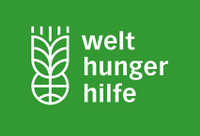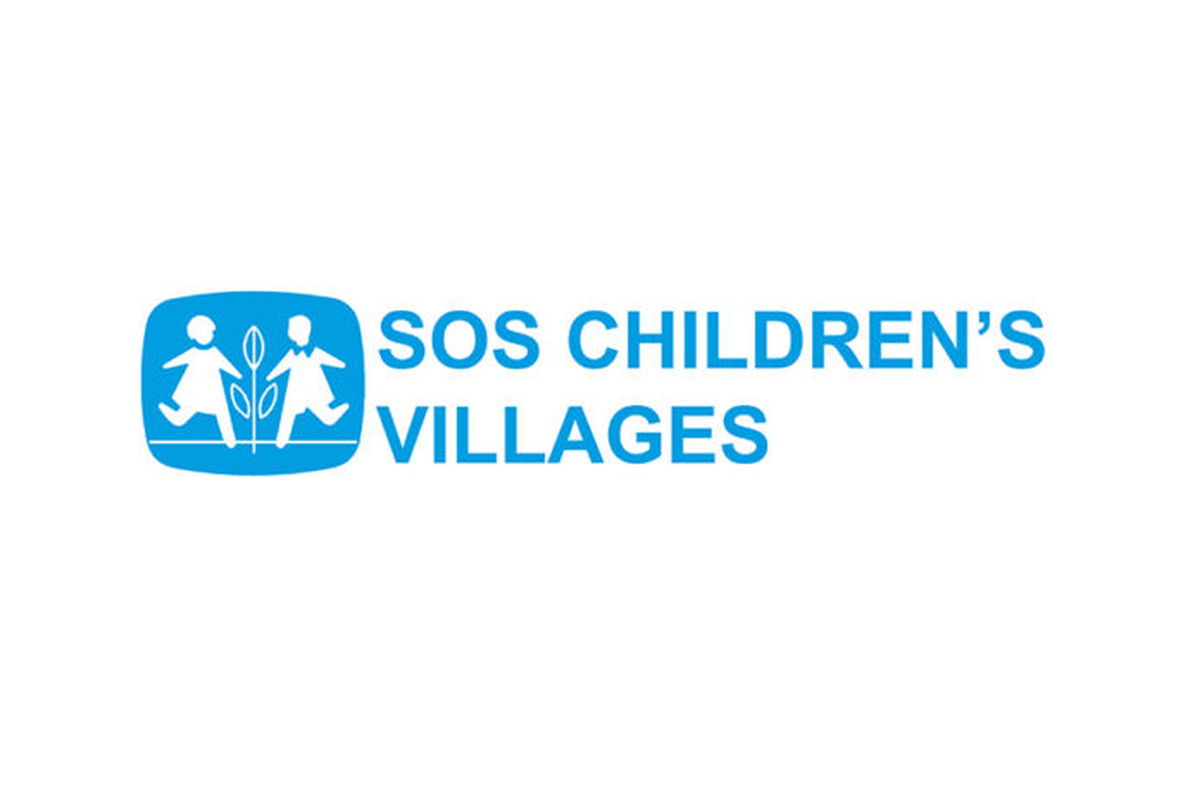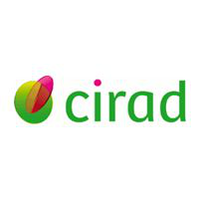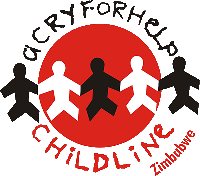Consultant: Baseline Study on Sanitation Service Delivery Models
Consultancy, Research Jobs
- Welthungerhilfe
- Expires 10 Feb 2023
- Bulawayo
- Internship
Job Description
Welthungerhilfe is one of the largest German non-governmental organisations in development co- operation and emergency relief. Primarily in co-operation with local partner organisations, our task is to contribute to the improvement in nutritional and income base for the low-income populations in Africa, Asia and Latin America. Welthungerhilfe has been implementing projects in Zimbabwe since 1980. Sector focus is on Water Sanitation and Hygiene, Food and Nutrition Security, Livelihoods and when necessary, Emergency Response.
Position Summary:
Welthungerhilfe is seeking for a Consultant for Baseline Study on Sanitation Service Delivery Models. Please kindly refer to the Terms of Reference below for more information on this advert
Study on the Factors Causing Open-Defecation Slippage in the Rural Areas of Zimbabwe’s Mount Darwin and Chegutu Districts
Terms of Reference
Study Background
Zimbabwe has a long history of championing innovative approaches to sanitation improvements. Specific technologies such as the Ventilated Improved Pit Latrine (VIP) rejuvenated access to improved sanitation locally and globally. Moreover, using social marketing strategies such as Participatory Health and Hygiene Education (PHHE) provided a solid impetus for positive behaviour change. The National Action Committee (NAC) for rural water supply and sanitation created in the mid-1980s has provided leadership in the sub-sector, but also assured the coordination of efforts, crosscutting learning and become a repository of valuable experiences and lessons.
Despite the important developments noted above, access to improved sanitation facilities remains a pressing challenge, especially in rural areas. In Zimbabwe nationally combined rural and urban sanitation coverage is 70.7% (JSR 2022). Open-defecation-free (ODF) slippage is a particularly pressing challenge in rural Zimbabwe. Of note, nationally OD exceed 21% (ZimStat UNICEF report 2019). A recent report from DWSSC in Mt Darwin says the district recorded ODF slippage of 50.2% between 2019 and 2022. Within this context, Welthungerhilfe Zimbabwe and partners are commissioning a study on the extent of ODF slippage in Zimbabwe’s Mount Darwin and Chegutu districts as well as the motivating and demotivating factors and key enablers and barriers contributing to ODF retention and slippage in these districts. The findings from this study will be used to directly inform the development of programme interventions designed to reduce the ODF slippage rate in the two districts.
Welthungerhilfe Zimbabwe and partners have issued a separate Terms of Reference for an assignment focused on identifying the extent to which CBM is functioning ‘effectively’ for rural water supply service provision in Mount Darwin and Chegutu districts and the strengths and weaknesses in its application. Consultants or consultancies with appropriate experience and capacity are invited to submit joint technical and financial proposals for these assignments where they feel that this will result in cost efficiencies and, in turn, the delivery of higher-quality outputs.
Duties and Responsibilities
Study Objectives
The study has three overarching objectives:
IV. Determining the current rates of ODF retention and slippage in Zimbabwe’s Mount Darwin and Chegutu districts.
V. Determining enablers and barriers to ODF attainment in Zimbabwe’s Mount Darwin and Chegutu districts.
VI. Specifying the motivating and demotivating factors as well as key enablers and barriers contributing to ODF retention and slippage in Zimbabwe’s Mount Darwin and Chegutu districts and outlining the most significant of these.
VII. Proposing a series of recommendations regarding key steps that Welthungerhilfe Zimbabwe and partners should take in collaboration with the Government of Zimbabwe to reduce the rate of ODF slippage in Zimbabwe’s Mount Darwin and Chegutu districts.
Study Scope
The study is to be bounded in the following ways:
VI. Geographic Focus. The assignment will focus on Zimbabwe’s Mount Darwin and Chegutu districts. Primary data collection should be limited to these districts; however, the consultant or consultancy is invited to draw upon secondary resources from beyond these districts to provide a broader context to the study’s findings.
VII. Demographic Setting. The study will focus on rural communities; however, this should cover rural service (business) centres as well as rural settings where these have been the focus of interventions designed to achieve ODF status.
VIII. Technology. The study should include the following range of sanitation technologies: (i) water- borne system; (ii) BVIP; (iii) uBVIP; (iv) tippy-taps and (v) refuse pits.
IX. Actors. Sustaining ODF status is dependent on a wide range of actors, including households, local leadership, SAGs, CHCs, VHWs, VWSSCs, WWSSCs, , DWSSCs, PWSSCs, and the NAC. While households are expected to be a core focus of the study, the consultant or consultancy is expected to engage with a wider set of actors across the above levels.
Study Methodology
The consultant or consultancy is expected to propose a detailed methodology for achieving the study objectives. This should include (but does not need to be limited to):
I. Desk review and consultative meetings.
II. Primary data collection (i.e., key informant interviews, focus group discussions, physical observation) with household, local leadership, SAGs, CHCs, VHWs, VWSSCs, WWSSCs, DWSSCs, PWSSCs, and the NAC.
The consultant or consultancy is expected to develop an assessment framework or utilise / adapt an existing framework to guide the application of the specified methodology. This assessment framework should (but does not need to be limited to) cover the following dimensions:
I. The mapping of previously declared ODF communities in Mount Darwin and Chegutu districts, and the compilation of background information on these communities.
II. The re-verification criteria and process to be employed to determine whether communities and households have suffered ODF slippage and the extent of this slippage.
III. The factors to be investigated to determine their importance on whether ODF status was retained or lost. This should cover motivating and demotivating factors as well as enablers and barriers to retaining ODF status. This should enable the consultant to determine factors (enablers) that contributed to attainment of ODF status, factors contributing to ODF sustainability and factors (demotivating) contributing to slippage in ODF status.
Consultants or consultancies are invited to draw upon existing methodologies that have been utilised in previous studies examining the rates of ODF retention and slippage as well as motivating and de-motivating factors and key enablers and barriers to retaining ODF status.
Study Outputs
The consultant or consultancy is required to produce the following outputs.
I. Deliverable One: Inception Report. Develop an inception report covering at least the following aspects:
a. Assessment Framework. Provide as attachment an assessment framework for determining the current rates of ODF retention and slippage as well as the motivating and demotivating factors and enablers and barriers to retaining ODF status.
b. Primary Data Collection. Provide an overview of proposed primary data collection activities, including detailed information on the field visits and stakeholder consultations to be performed and the data collection tools to be employed.
c. Annotated Final Report Template. Provide a template for the final report specifying key information and areas of analysis to be included in each section.
II. Deliverable Two: Inception Workshop. Convene an inception workshop to update Welthungerhilfe Zimbabwe and partners (and other relevant stakeholders) on activities performed during the inception period and discuss the feedback on the inception report.
III. Deliverable Three: Final Report. Develop a final report providing the following:
a. Status of rural sanitation in Zimbabwe’s Mount Darwin and Chegutu districts.
b. The rates of ODF retention and slippage in Zimbabwe’s Mount Darwin and Chegutu districts.
c. The factors contributing to the current rates of ODF retention and slippage in Zimbabwe’s Mount Darwin and Chegutu districts, and specification of the most significant of these.
d. A series of recommendations regarding key steps that Welthungerhilfe Zimbabwe and partners should take in collaboration with the Government of Zimbabwe to reduce the rate of ODF slippage in Zimbabwe’s Mount Darwin and Chegutu districts.
IV. Deliverable Four: Results Workshop. Convene a one-day workshop to discuss the findings and recommendations of the study with a group (agreed with the client) of stakeholders and contributors.
V. Deliverable Five: Data Transfer. Transfer all data and information gathered during the assignment to Welthungerhilfe Zimbabwe to be shared with Government and other interested parties.
Level of Effort, Timeframes, and Payment Schedule
An estimated 20 consultancy days are required for the assignment, and the assignment should be completed within a maximum of two months.
The Table below presents envisioned dates for completing key milestones. The payment schedule linked to each of these key milestones is also specified.
Contract Signature. 20.02.2023 None.
Delivery of inception meeting and client acceptance of inception report of a satisfactory standard (Deliverables One and Two). 24.02.2023 25%
Delivery of results workshop and client acceptance of final report to a satisfactory standard (Deliverables Three and Four). 24.03.2023 50%
Data transfer. 30.03.2023 25%
All deliverables will have to meet the expected quality and standards as assessed by the supervisor of the assignment. Should the consultant or consultancy fail to deliver as per expected quality and standards, Welthungerhilfe Zimbabwe and partners reserve the right to amend the payouts accordingly or to delay them until satisfactory submission has been received.
The selected consultant or consultancy will work under the strategic guidance of the WASH Systems Strengthening Initiatives Head of Projects (WSSI) Head of Projects, and the consultant or consultancy is expected to work closely with WASH Systems Strengthening Initiative partner managers. The consultant will be responsible for ensuring that the consultancy is undertaken as described in these terms of reference and in their proposal. The consultant should meet deadlines and ensure the quality of all products and deliverables.
Proposal Contents and Procedure for Submission
Qualified consultants or consultancies are invited to submit a proposal for this assignment. The proposal should, at a minimum, include the following:
• Technical Approach. The consultant or consultancy should provide a description and timeline of the planned technical approach, not to exceed ten pages.
• Consultancy Experience. The relevant experience of the consultant or consultancy, not to exceed three pages. CVs of the proposed consultant or team of consultants should also be included, highlighting the experience requested below.
• Financial Proposal. In a separate, explicitly marked document, the consultant should present a financial proposal detailing gross costs for undertaking the assignment, including operating expenses and applicable taxes.
• Questions on the assignment should be submitted to tendai.tendere@welthungerhilfe.de and CC to admin@mvuramanzi.co.zw, bloodwell@mvuramanzi.co.zw, bjmuhoma@gmail.com, Shadreck.Kundishora@welthungerhilfe.de , priscilla.majongwe@welthungerhilfe.de
• Deadline for submitting questions: by 1700 hrs on 03/02/2023 and responses will be given on a case-by-case basis.
Qualifications and Experience
The consultant or consultancy is expected to have proven experience in rural sanitation programming, public policy analysis and development, local governance, sector performance monitoring, strategic planning, and a detailed understanding of Zimbabwe’s WASH Sector. The consultant or consultancy is, therefore, expected to have diverse skills to meet the expectations of the assignment. Additional desired attributes include the following:
I. A Master’s or higher degree(s) in a relevant technical or management discipline.
II. A minimum of 10 years’ experience in undertaking similar analytical work (e.g., strategy, policy, capacity development and reviews in a relevant discipline or sector).
III. Experience of facilitating high-level multi-stakeholder dialogue focused on government-based (both central and local government) transformations for basic service delivery with or without the assistance/participation of development partners.
IV. International or regional experience will be an added advantage.
V. Proven skills in preparing and communicating high-quality documents and reports for policy advocacy and lobbying.
VI. Excellent English report writing and communication skills.
VII. A strong commitment to delivering timely and high-quality results, including evidence of similar work.
How to Apply
During the application process, WHH will not charge any fee nor will it require any payment for an application to be considered. WHH is an equal opportunity employer and employs personnel without regard to race, place of origin, colour, ethnic origin, language, creed, religion, gender, sexual orientation, age, marital status and or physical handicap: Persons with disability are encouraged to apply:
Interested candidates should submit proposals via email to: recruitment.zimbabwe@welthungerhilfe.de indicating the position in the subject line.
NB Preference will be given to consultancy(s) who can take up both assignments.





